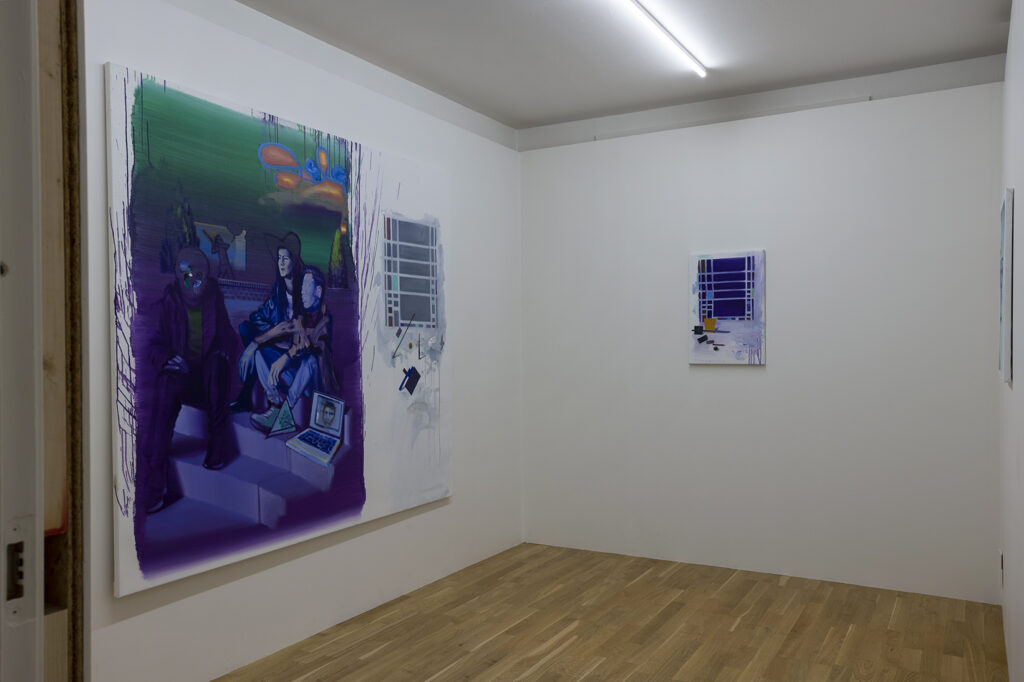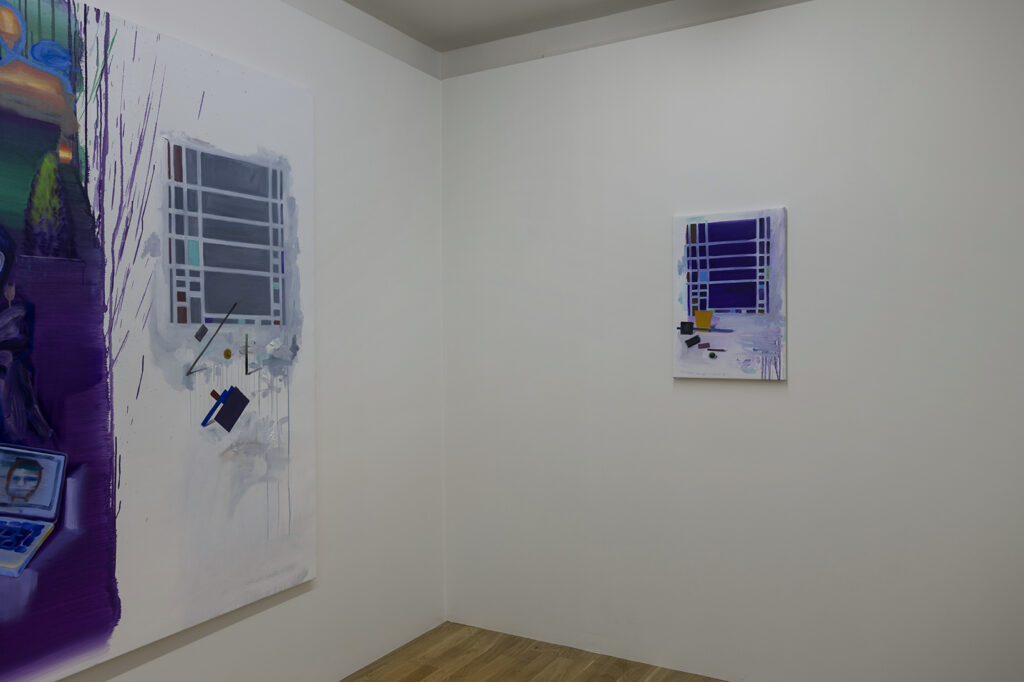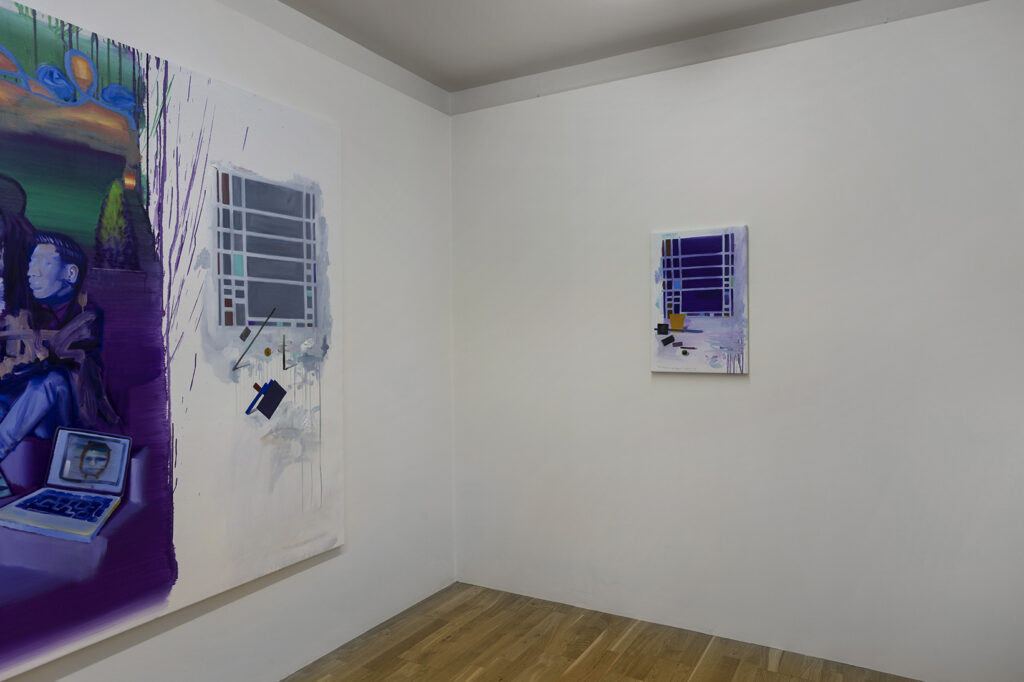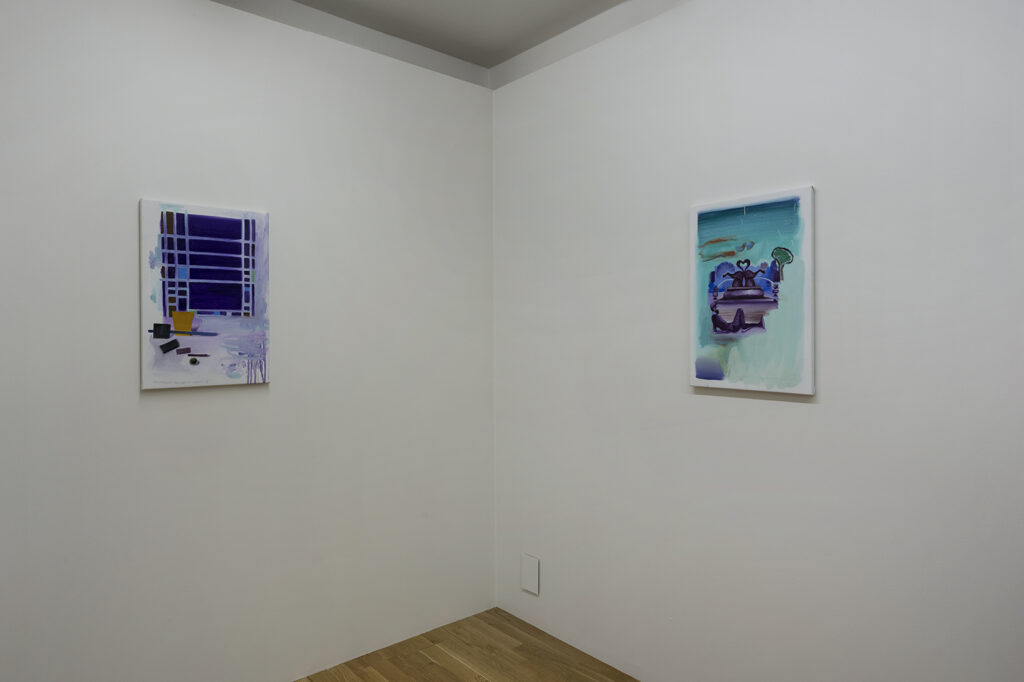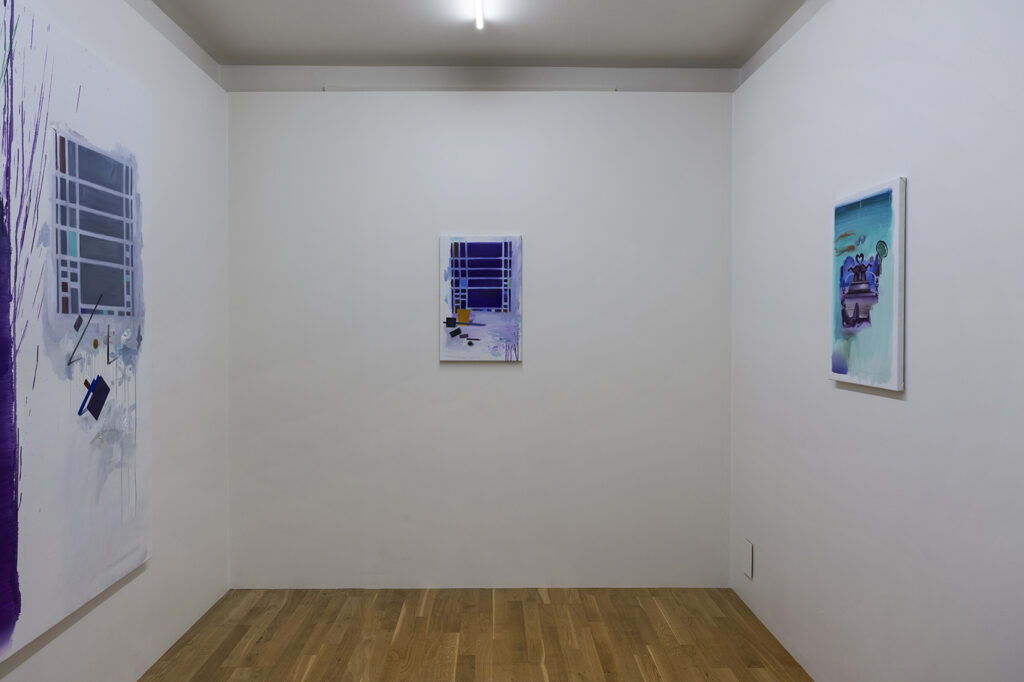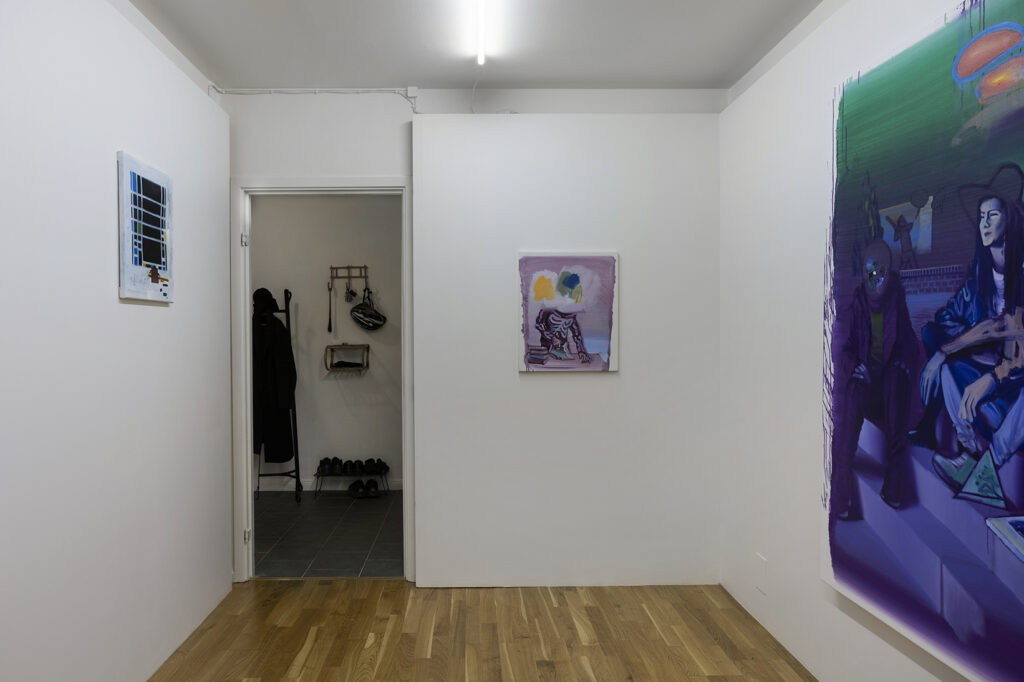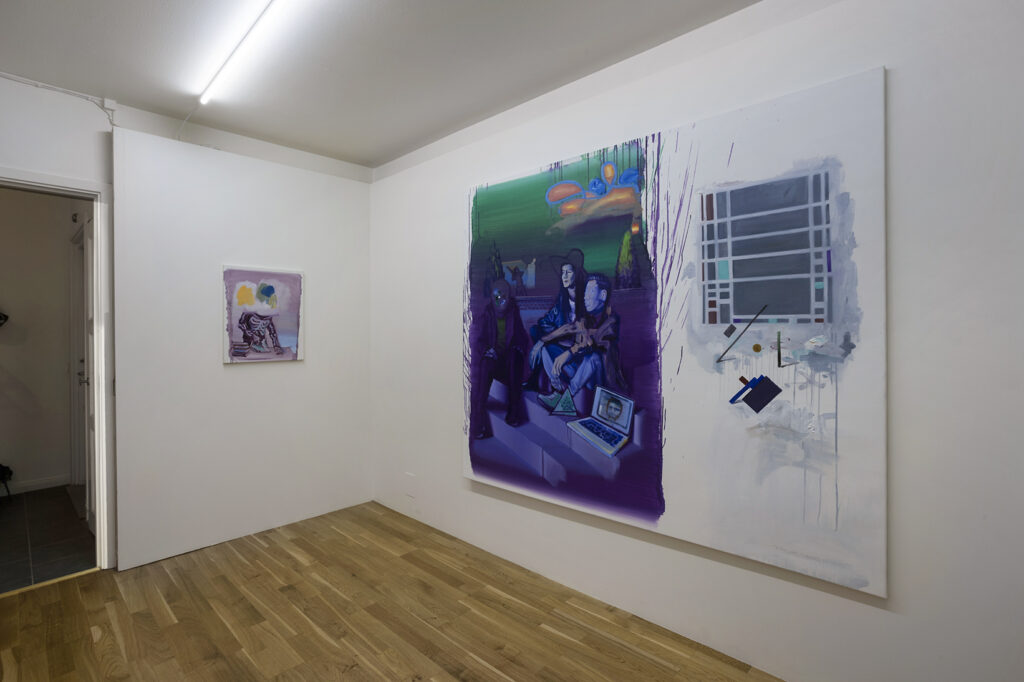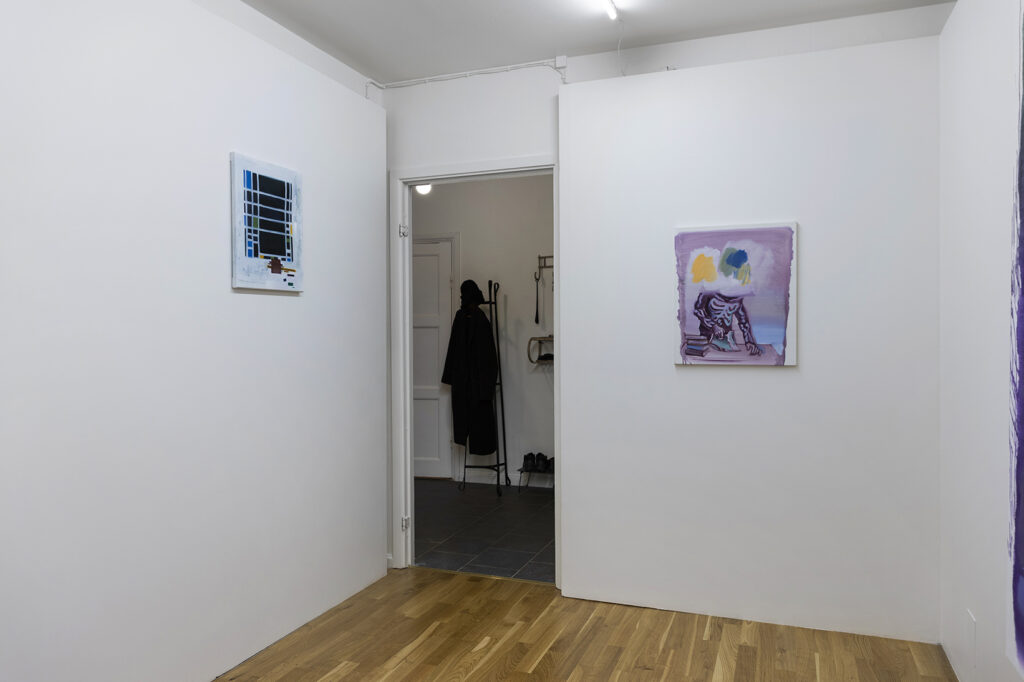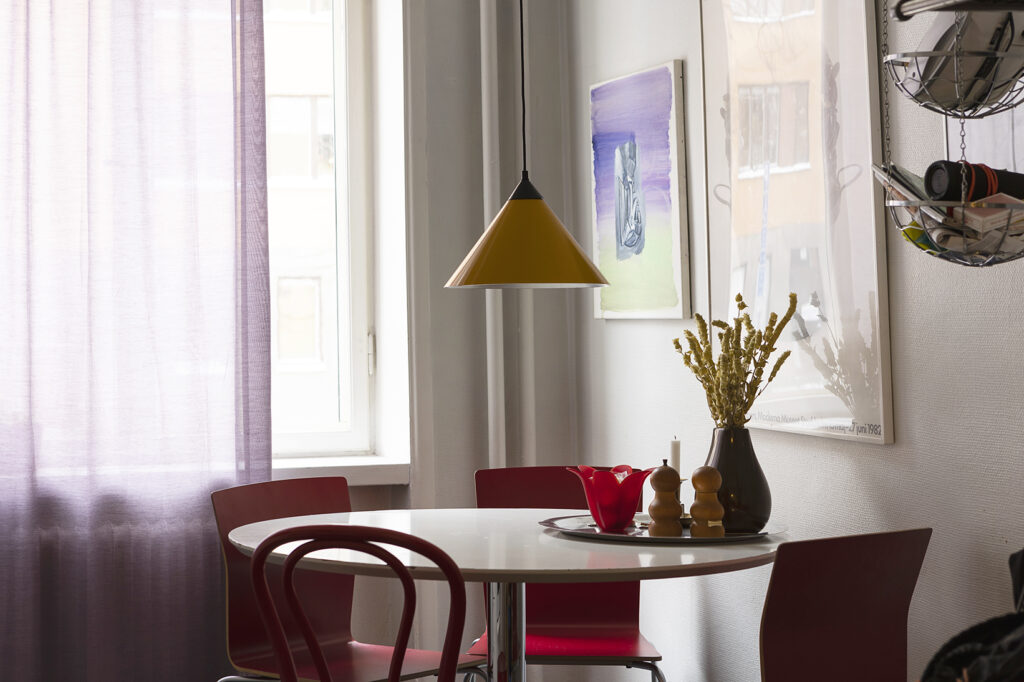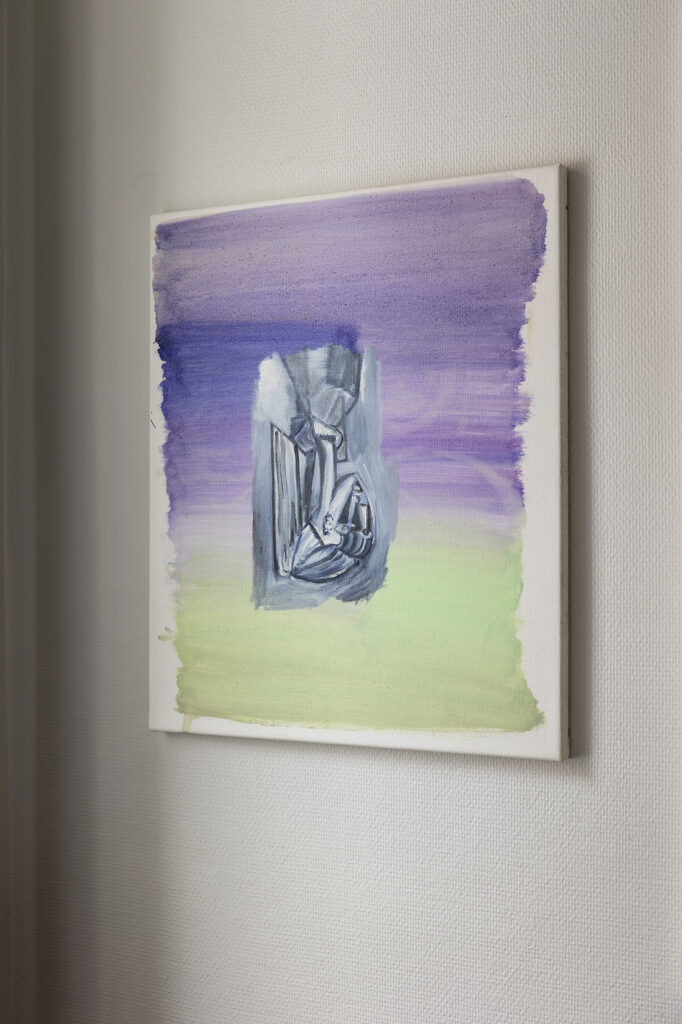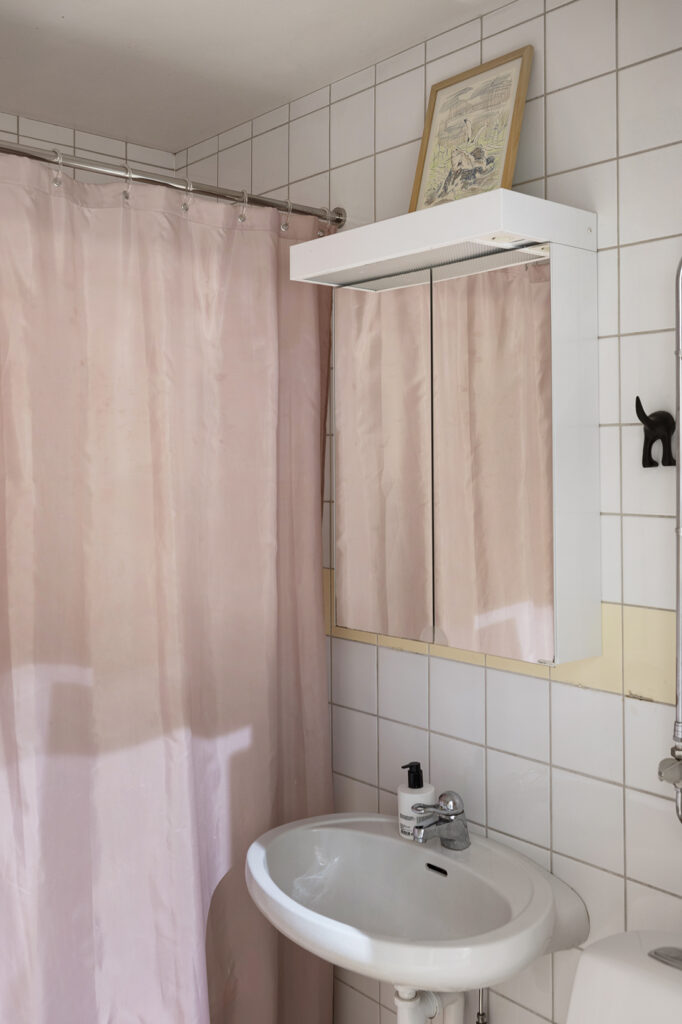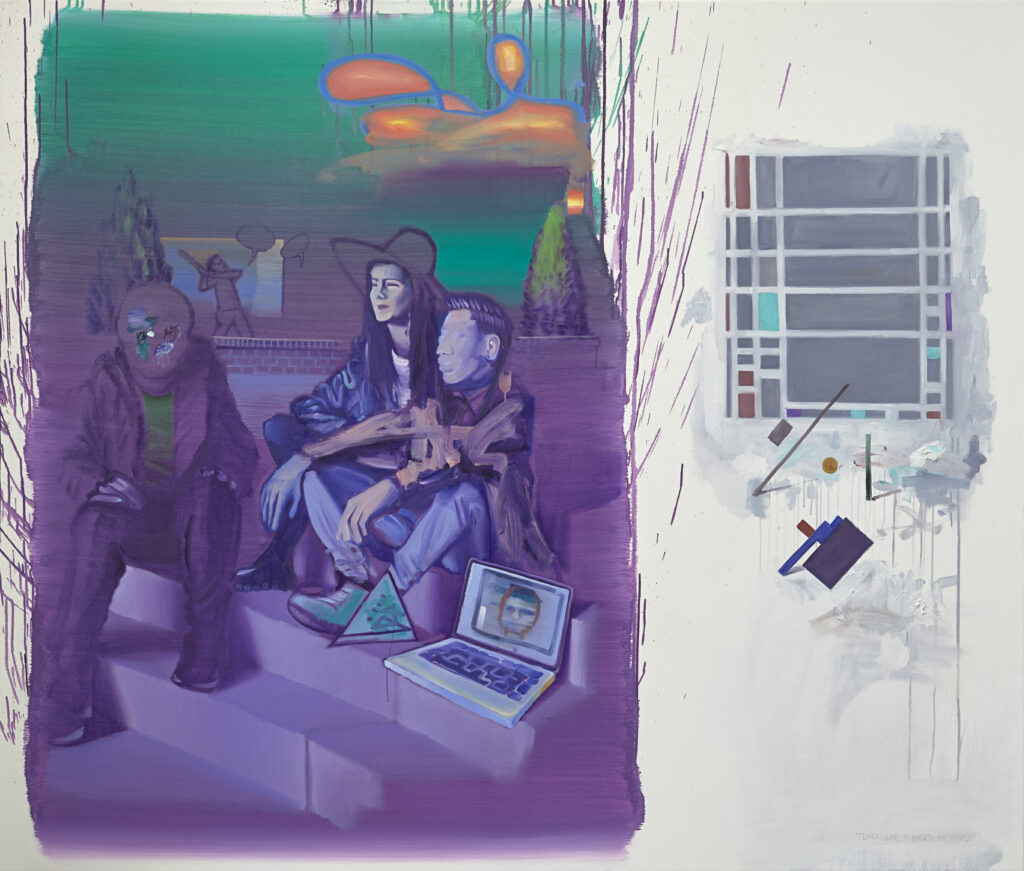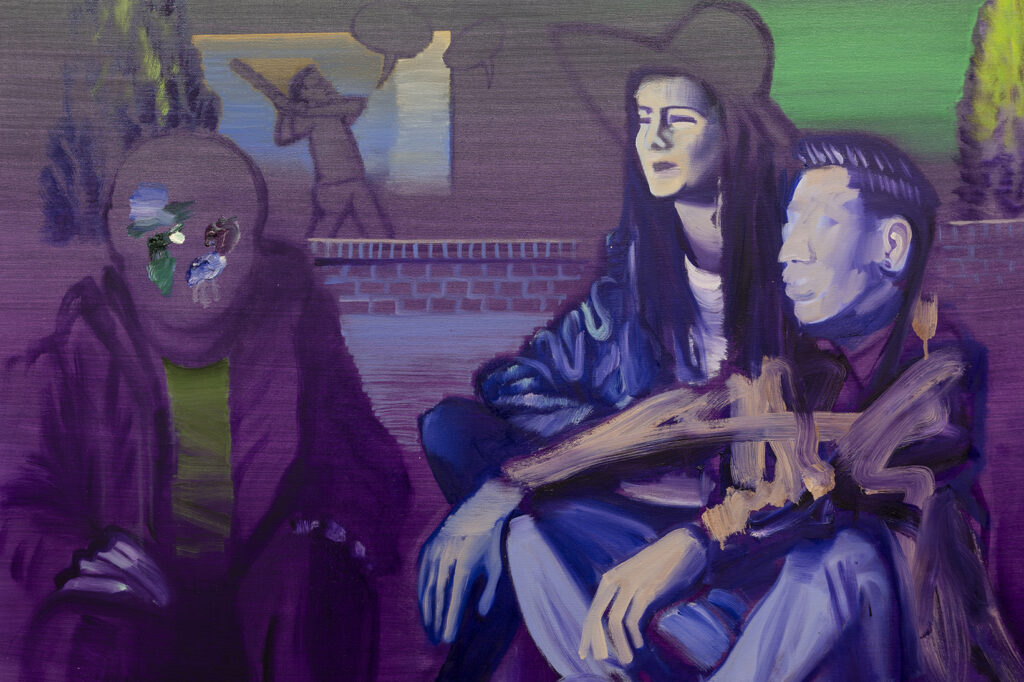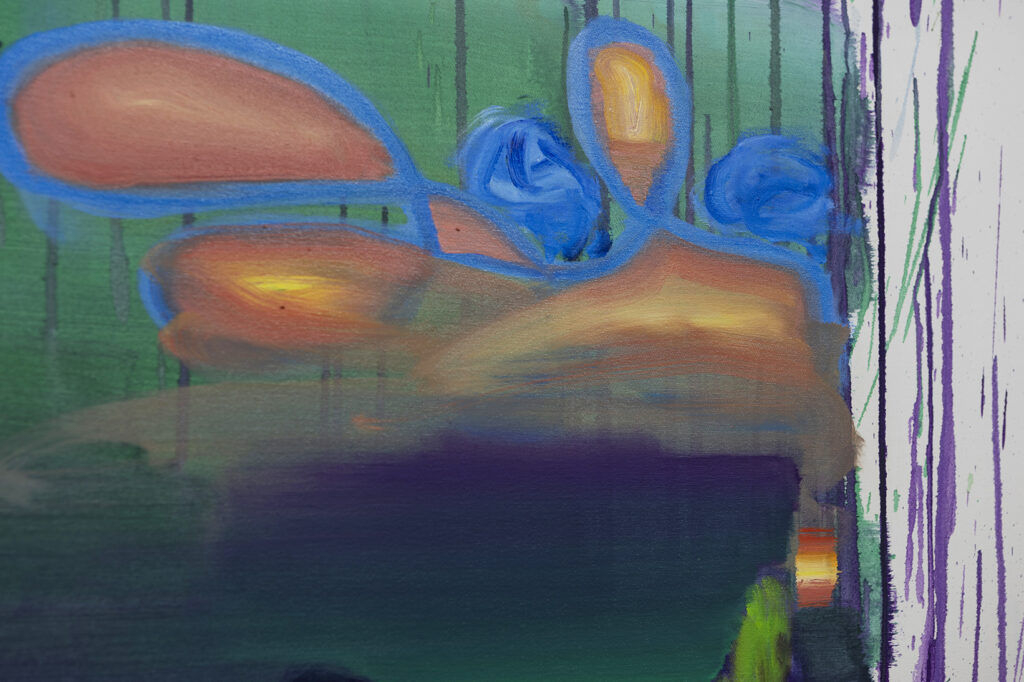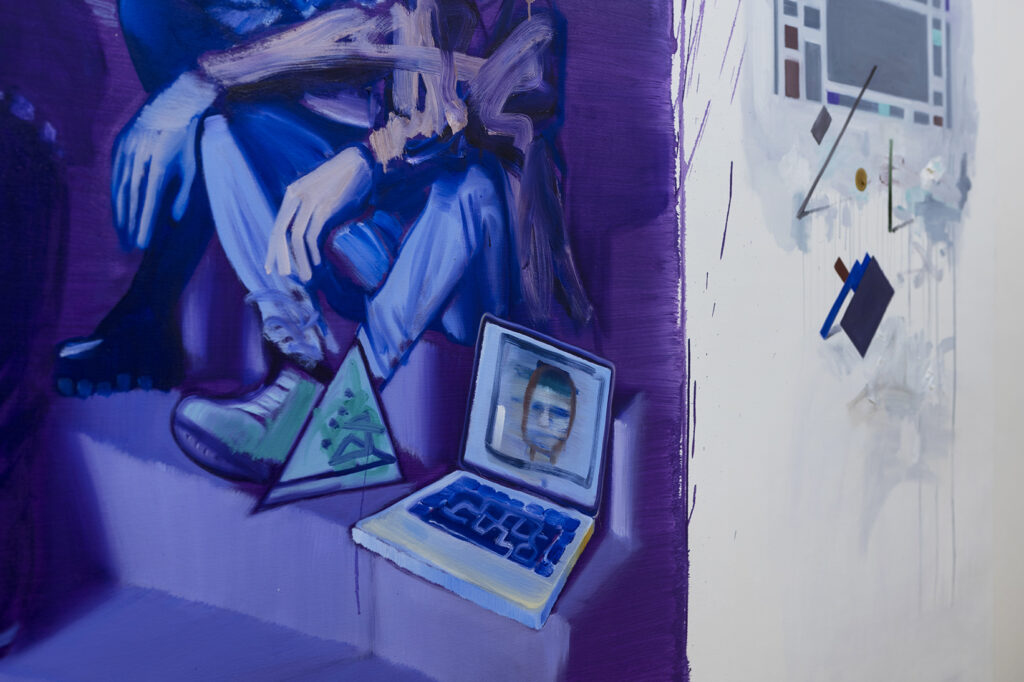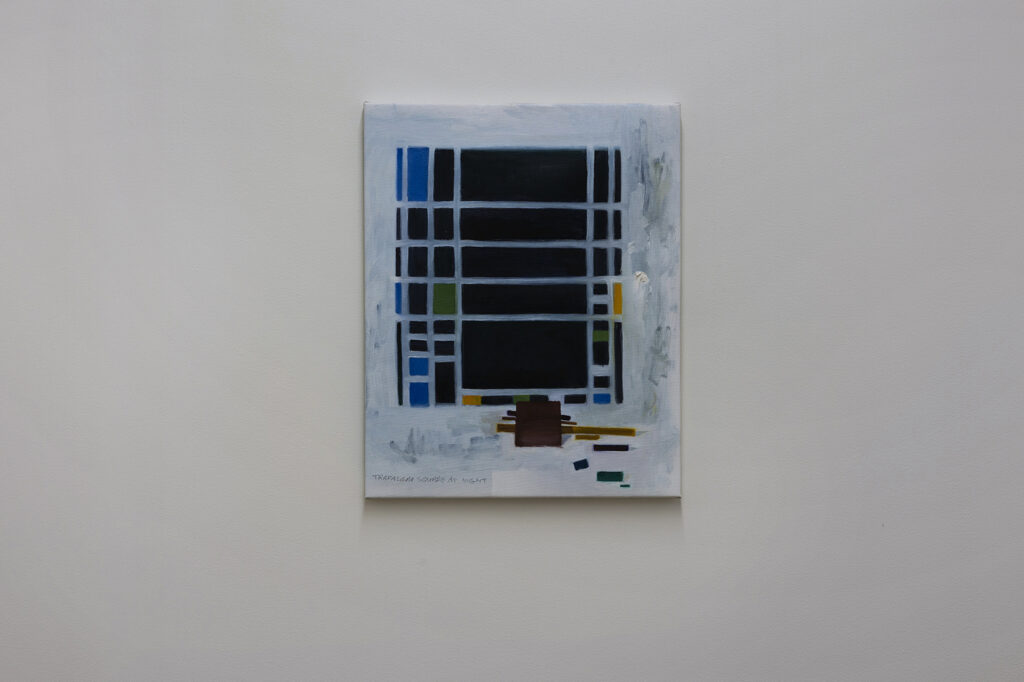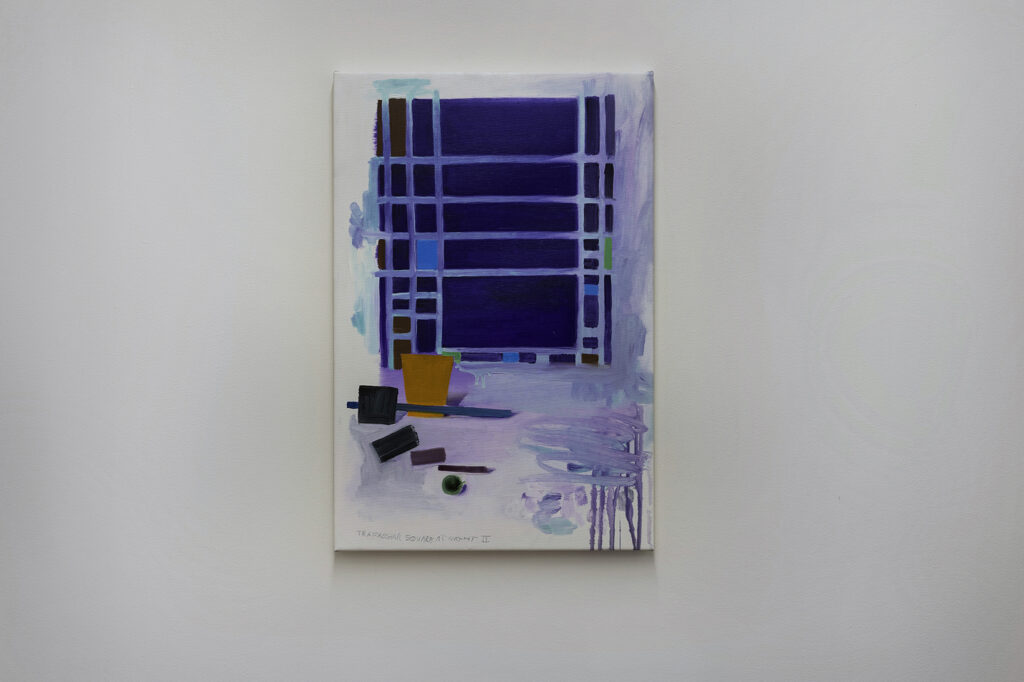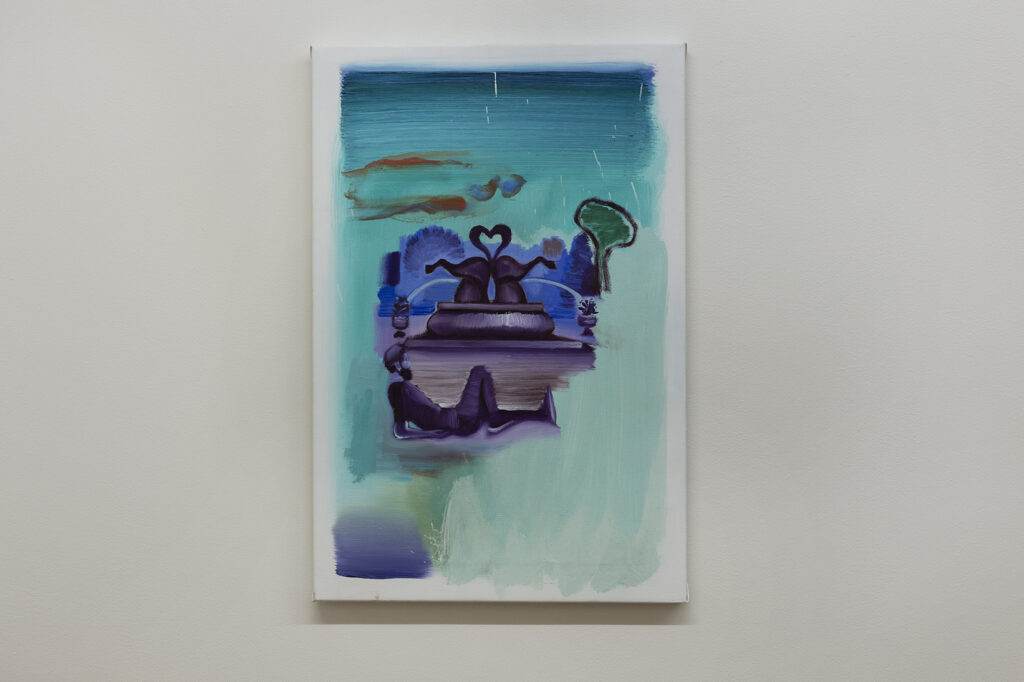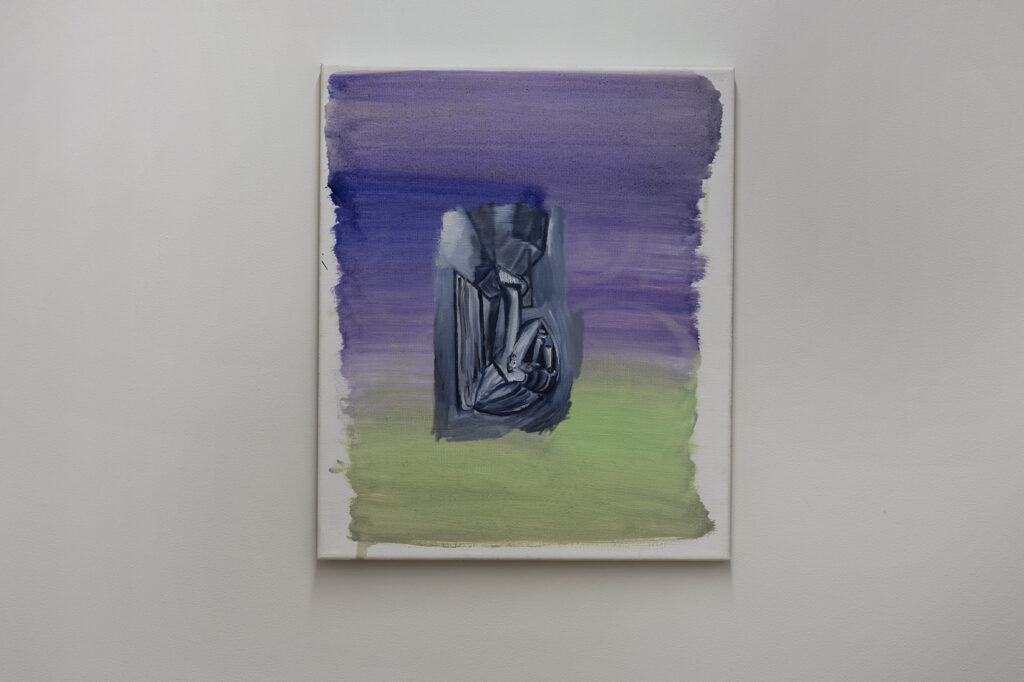19.11.23 – 4.02.24
Open by appointment until February 4th.
Blekingegatan 8
RSVP: info@mega-foundation.com
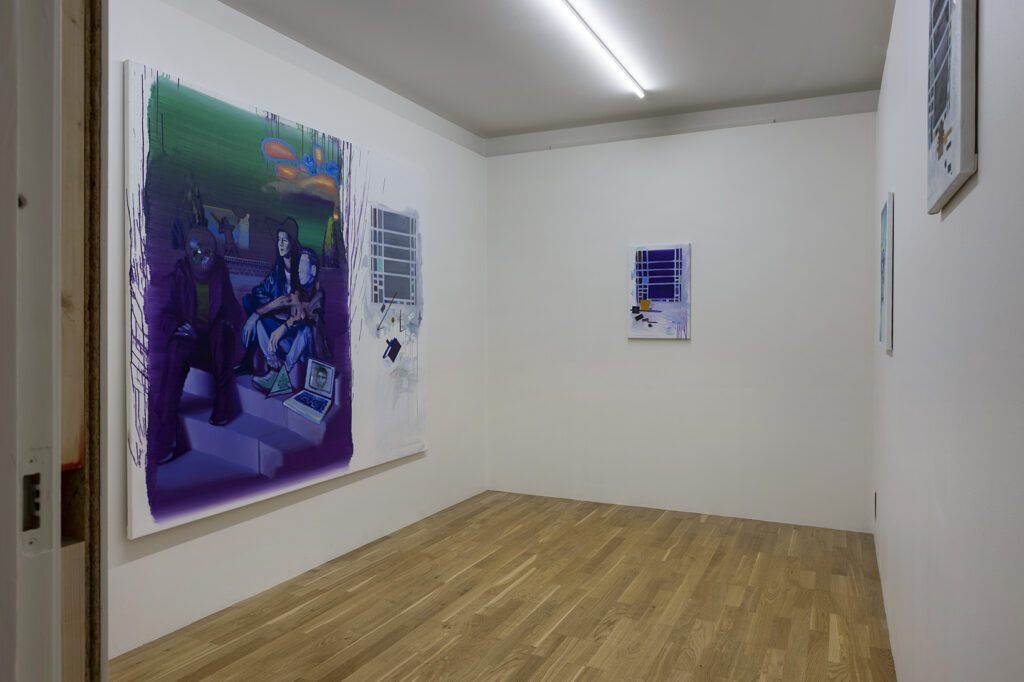
Embark on a visual odyssey with Gábor Pintér’s current solo exhibition, “Beaver Dam
in the Sea of Crisis,” gracing the intimate spaces of MEGA Foundation in Stockholm.
Renowned for his parallel exploration of figurative and abstract realms, Pintér unveils
a conceptual experiment in this exhibition. The title piece is a synthesis of Trafalgar
Square by Mondrian, imbued with suprematist elements from Malevich’s oeuvre. Here,
Pintér masterfully poses the question of constructing a figurative image with abstract
elements, inviting viewers to navigate the delicate interplay.
The series “Trafalgar Square at Night 1-2” showcases interior scenes with Mondrian’s
backdrop, enriched by suprematist elements akin to still lifes. Pintér’s intellectual depth
is evident as he weaves modernist color palette tricks into “Untitled – Changing
Picasso’s Blue to Pink,” a testament to his nuanced exploration of great masters.
As always, Pintér’s visionary canvases are steeped in art historical references,
challenging viewers to decipher layers of meaning. His works serve as a poignant
reminder that our world beckons for positive transformation. Echoing the sentiments
of Mondrian and Malevich, Pintér prompts us to consider art as a catalyst for societal
change, urging us to contribute to a brighter future. “Beaver Dam in the Sea of Crisis”
is a testament to Pintér’s intellectual prowess, a visual symphony orchestrating a
harmonious dialogue between tradition and innovation in the field of contemporary
painting.
Mare Crisium, derived from the Latin crisium meaning the “Sea of Crises,” is a lunar mare
situated in the Crisium basin on the Moon, just northeast of Mare Tranquillitatis. This lunar
basin is of Nectarian age and is prominently featured in the title of Pintér’s current exhibition.
And don’t forget to look up in the bathroom!
Peter Bencze
–
Gábor Pintér draws up studies on the process of visual representation. He constructs an almost cartoonishly postmodern world by accumulating explicit visual references ranging from ancient myths and early 20th-century modernist tradition to comics, moving images and graffiti.
Pintér’s work gives us brief insights into alienating, distant scenarios – where mysteries lurk in the background, and there is no way to break the code. Automatic, randomised visual references appear as a stream of memories of (pop) culture and the media imagery etched into the collective unconscious to emerge time and time again arbitrarily. The mute affairs and unannounced scenarios urge us to unravel the puzzle and search for a key long lost in the maze of visual tradition and contemporary image economy.
